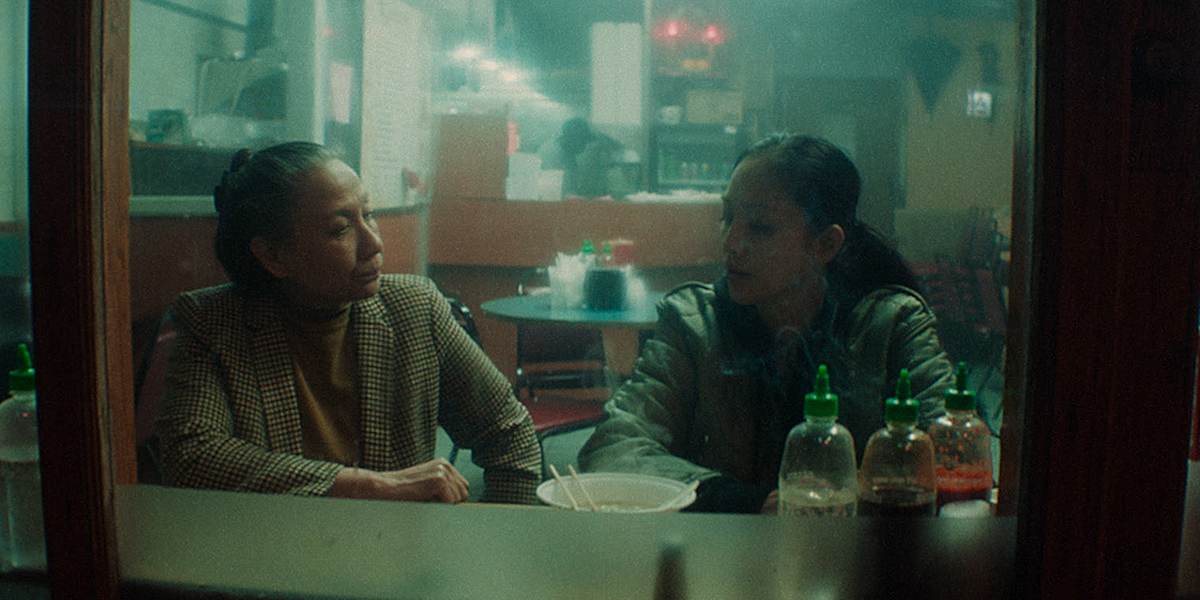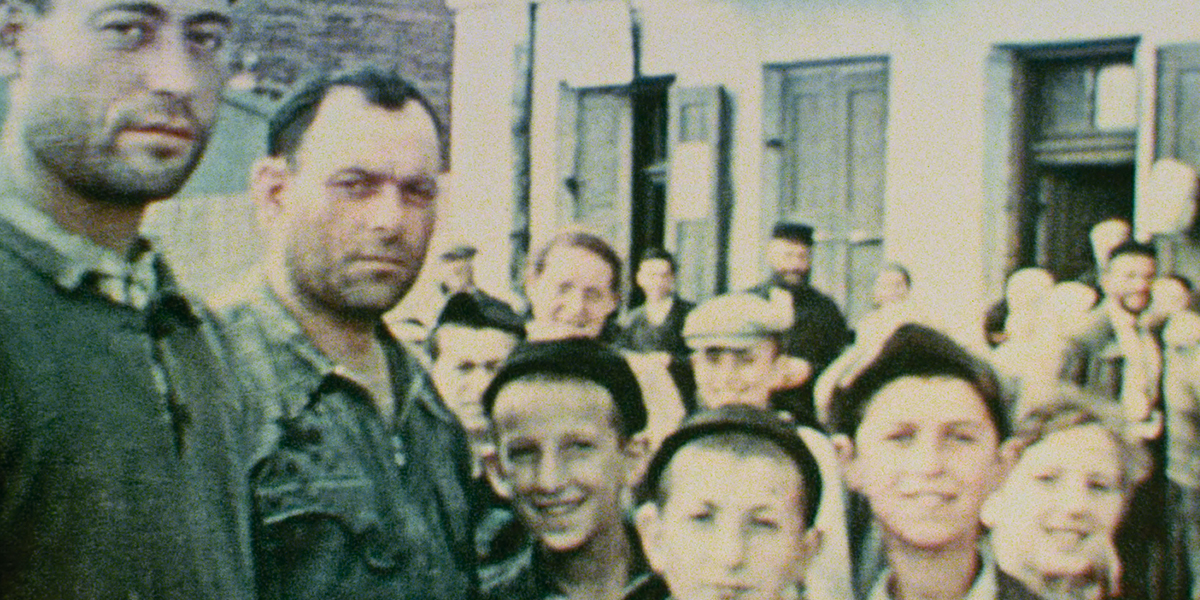|
|
||
|
Pro Tools
FILMFESTIVALS | 24/7 world wide coverageWelcome ! Enjoy the best of both worlds: Film & Festival News, exploring the best of the film festivals community. Launched in 1995, relentlessly connecting films to festivals, documenting and promoting festivals worldwide. We are currently working actively to upgrade this platform, sorry for the inconvenience. For collaboration, editorial contributions, or publicity, please send us an email here. User login |
Claus MuellerClaus Mueller is filmfestivals.com Senior New York Correspondent New York City based Claus Mueller reviews film festivals and related issues and serves as a senior editor for Society and Diplomatic Review. As a professor emeritus he covered at Hunter College / CUNY social and media research and is an accredited member of the US State Department's Foreign Press Center.
 Toronto International Film Festival 2021
The 46th edition of the Toronto International Film Festival (TIFF) was held from September 9 – 18. The program consisted of close to 200 exceptional Canadian and international films in its official selections alongside renowned industry conferences. TIFF adopted a hybrid format this year, combining online screenings of the productions and in- person theatrical exposure in numerous Ontario venues. Through TIFF Bell Lightbox and Bell Digital Talks platforms, individuals throughout Canada were able to participate in the festival. Access through its equally well-organized Digital Cinema Pro platform facilitated press and industry, as well as delegates from all over the world, to screen films and take part in numerous festival events. Some films were geo-blocked from online screenings in some regions or not authorized for online use by the rights holders. Programming for the 2021 festival was unique as in prior years because the guiding ideas are not defined by commitment to a singular theme such as outstanding cinematic productions, innovative story telling approaches, the most viable commercial films, new productions from underrepresented minority groups or hitherto unknown filmmaking from developing countries, or the most pressing sociopolitical and economic issues. TIFF selected superior productions from all of these and other thematic sectors, making TIFF a favorite festival for film professionals and the interested audience. This approach is closely linked to TIFF’s mission “to transform the way people see the world through film”. It is also reflected in the selection of the best film of the festival. The viewers rather than a jury decided on the award winner among the competing 170 films and decided on Kenneth Branagh’s North Ireland feature BELFAST. TIFF has continued to be acknowledged as the world’s best and largest public film festival. TIFF has also further expanded. The film office received 6,900 submissions this year and the number of films chosen grew to 118 compared to 50 last year. The program selected 118 features, 45 shorts, and 14 documentaries. The audience reached a total of 165,000. Not only did TIFF retain all sponsors from last year but was able to add several new ones. Shifting to the hybrid format was certainly successful, an achievement also due to the excellent organization of the festival. Principal supporters of the festival are the funding sponsor Bell and RBC, L’Oréal Paris, Visa, the Ontario government, City of Toronto, Telefilm Canada, the Reiman family and the Daniels corporation. To name but a few of the outstanding films:
SNAKEHEAD, 2021, from the USA, was produced over 7 years by the Chinese-American documentary director Evan Jackson Leong. The film is Evan Jackson Leong’s first fictional production. SNAKEHEAD is a reality based documentary style thriller reflecting the real life experiences of a Chinese woman, Sister Tse, smuggled into the United States. Tse joins a New York based Chinese family gang which got her into the country in order to pay off the $57,000 debt she owes. She hopes to find her child, adopted by a Chinese American family when she was in prison. Coming from an impoverished background, and having been sold into prostitution in China, Tse rises from her lowly position in the gang’s kitchen to become a senior member of the gang. Tse is embraced by Dai Mah, the matriarchal head of the family’s business. Dai’s portrait is based on a real person, Cheng Chui Ping, who managed a large snakehead human smuggling racket for 20 years before her arrest. Dai Mah prefers Tse over her criminal sons. Tse has more willpower, intelligence, and strategic aptitude. Dai Mah grooms Tse for leadership of the family syndicate. Tse becomes a snakehead, charged with bringing Chinese fleeing their country to the United States, an unusual position for an outsider like Tse. Behind her overt criminal activities, Tse is solely motivated by finding her missing child. Dai Mah holds Tse responsible for having given up her child but is willing to give Tse her daughter back if she agrees to take over the business. Grounded in real events, this feature captures all facets of the illegal migration trade. These skills, technical, financial, practical, or interpersonal, are all mastered by Tse including negotiations with fellow gangsters and contacts with migrants kept in captivity until they can pay off their debts. Tse handles cargo ships and cars to transport illegal migrants and fights off marauders trying to rob her shipments. The police seek her cooperation after numerous immigrants were found frozen to death in a truck and her fingerprints were found. Tse shows her capacity for empathy, interacting with others who are as marginalized as she once was. She aids kitchen workers because they cannot afford to bring their families to the US. With the close cooperation of the New York City Chinatown community Leong produced a captivating authentic film, replicating Tse’s underworld environment and actions. Much credit for the film goes to the superb acting of Shuya Chng as Tse and Jade Wu as Dai Mah.
FUTURA 2021, Italy, emulates Pasolini’s 1964 documentation ‘Love Encounters’ in exploring the perspectives Italians have on love and sex. In cities and countryside setting, three innovative Italian filmmakers, Pietro Marcello, Franceso Munzi and Alice Rohrwacher, explore over a year, interrupted by the Covid crisis, the perception teenage Italians have on their current life and the future. In non-directive meetings in major Italian cities and rural areas, the views of young people are explored in group and individual settings in an ethnographic manner. Candid portraits reveal the multifaceted dimensions of their views, covering interpretations of their family experience. FUTURA provides the pervasive uncertainty about their future life, a feeling of having limited powers over their fates, skepticism about policymakers and their problem solving ability, distrust of adults, a sense of being socially disconnected, and a fear and unease about the future. As one students put it “we are children of a devastated world trying to be redone in a world still to be created”. What these views reflect is in part due to the Covid and Climate crises which reinforce the fear, despair, and anxiety young people have about the world they are living in. A recent large scale study of 10,000 individuals in the 16-25 age group revealed that 60% have anxieties about the future. The study involved participants from the UK, France, Finland, Portugal and the US. but not Italy.
Bianca Stigter directed the extraordinary documentary THREE MINUTES: A LENGTHENING which was first screened at the Venice Film Festival and premiered in North America at the Toronto Film Festival. The film is outstanding and will be firmly established in festivals and screening venues focusing on cineastes, history, and anyone interested in innovative filmmaking and the Jewish past. It is of particular note because Stigter, a Dutch historian, and her collaborators, succeeded in transforming a short section from a color faded amateur film into a full length documentary. The film was shot in 1938 of a small Jewish town of about 150 people in Nasielsk, 30 miles north of Warsaw. They were part of a community of 3,000, of whom only 100 survived, after all others were killed in Treblinka and other death camps. It depicts people crowded on the village street, milling around in front of shops and the village square during a sunny day. Through excruciating research, Stigter reconstructs what the audience sees. She secures the help of two or three survivors and their descendants and share their stories of survival. Her team was able to restore much of the three minute segment using advanced restoration technologies. As a historian, Stigter was fascinated with the smallest of details. These details provide an important understanding of the context. The assistance of a German officer in freeing a female prisoner, the synagogue door destroyed in 1938 antisemitic riots, the composition of the crowd with only few females visible, identification if trees and objects, the meaning of caps boys were wearing in the segment, and the story of a small button factory trading with Germany. From archival documents and witness reports, the termination of the Jewish Nasaielsk community in 1939 is recounted in THREE MINUTES. The filmmakers hope to keep the memory of the victims alive and overcome the void their slaughter created. THREE MINUTES can be accessed through the U.S. Holocaust Memorial Museum in Washington.
Most media reporting about crime in Mexico focuses on the cartels, their drug trafficking, mass murder, and the impotence of law enforcement agencies. Few concern themselves with the social underbelly of crime and the rise of an accommodating culture. The 2021 documentary COMALA is the debut production by Gain Cassini, based in Monterrey, producer of numerous film and television programs. COMALA premiered at the Toronto International Film Festival and has the unique qualification of a director investigating his own family background to decodfe his roots. Using information from his family, Cassini tracked down surviving relatives, discovering a half brother and sister, alongside home videos, pictures, and was able to reconstruct an elaborate family map covering several generations. Cassini assembled a giant family tree not conforming to our standard view of parents and grandparents. There was no “normal” socialization of offspring and no law abiding role model citizens in stable settings present. Instead, a family of dysfunctions and criminal activities. Gain Cassini is a survivor, born out of wedlock, with a father that left when he was an infant. Cassini connected met his father when he was 14. His father worked as a cartel hitman and was killed in 2010 at the age of 42. Cassini’s half-brother was murdered when he was 25. If there were marriages or close relations, they were sequential or short term with males mostly in the dominant roles. Children grew up with little parental care, becoming part of the violent environment where they and their mothers were frequently abandoned. All seemed to be part of a criminal drug subculture and only few individuals talking with Cassini uttered comments rejecting this lifestyle or reflecting about it. After all, this culture covered most of their living needs. The transition from home to crime seemed to be programmed. It is not clear how Cassini emancipated himself, but in his subdued presentation he refrains from providing negative observations about the milieu depicted. As he stated in an interview talking about his family “I am able to lift the veil on a micro universe that represents the thousands of Mexican households linked by and to criminal activities. I do it with empathy. And [the] help to find my identity. But also, to live in fierce opposition to the normalization of crime”.
Claus Mueller New York filmexchange@gmail.com
07.10.2021 | Claus Mueller's blog Cat. : COMALA FUTURA Snakehead THREE MINUTES tiff
|
LinksThe Bulletin Board > The Bulletin Board Blog Following News Interview with EFM (Berlin) Director
Interview with IFTA Chairman (AFM)
Interview with Cannes Marche du Film Director
Filmfestivals.com dailies live coverage from > Live from India
Useful links for the indies: > Big files transfer
+ SUBSCRIBE to the weekly Newsletter DealsAbout Claus MuellerThe EditorUser contributions |


























